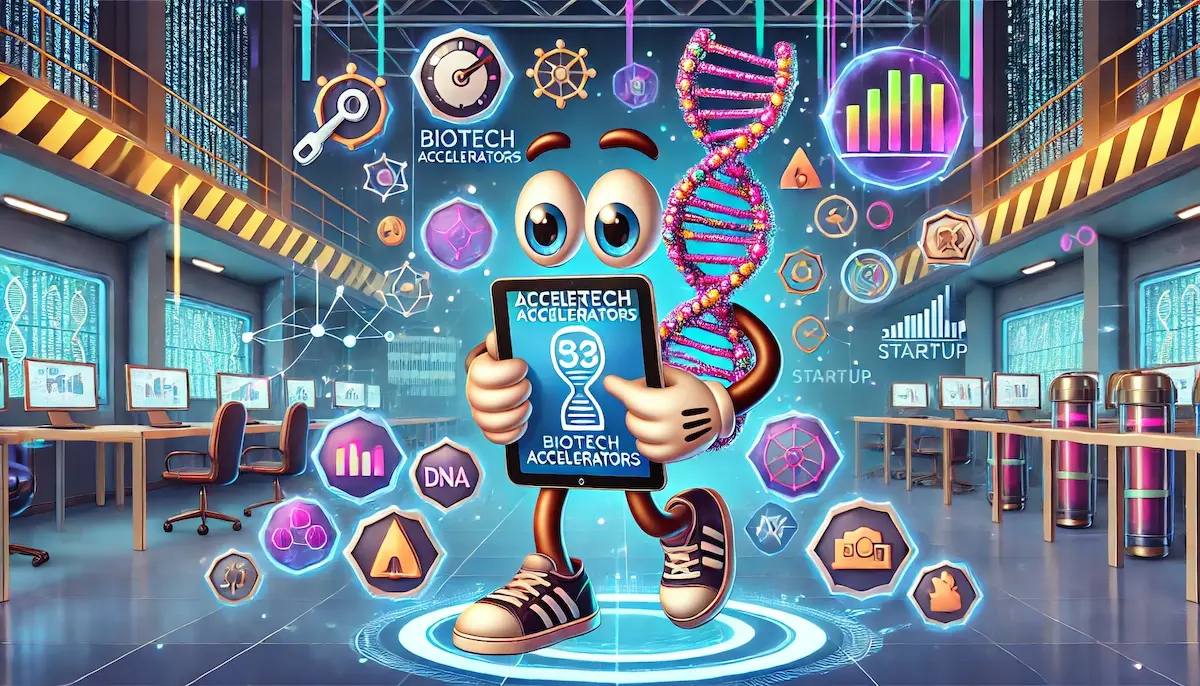Biotech accelerators are specialized programs designed to fast-track the development and growth of early-stage biotechnology startups. These accelerators provide startups with critical resources, mentorship, and funding opportunities over a fixed period, typically lasting a few months. The goal of biotech accelerators is to help startups refine their business models, accelerate product development, and prepare for successful market entry or fundraising rounds.
Origins and Importance
The concept of business accelerators originated in the early 2000s as a way to support tech startups by providing intensive, short-term mentorship and resources. As the biotechnology industry grew, the need for a similar model tailored to the unique challenges of biotech startups became apparent. Biotech accelerators emerged to address these needs, offering specialized support that combines scientific, regulatory, and business expertise.
Biotech accelerators are important because they help bridge the gap between scientific discovery and commercial success. The biotechnology field is complex, with long development timelines, high costs, and stringent regulatory requirements. Accelerators provide the focused support needed to navigate these challenges, enabling startups to move quickly from concept to commercialization.
Key Characteristics
- Fixed-Term Programs: Biotech accelerators typically operate on a fixed timeline, often ranging from three to six months. During this period, startups receive intensive support to achieve specific milestones, such as developing a prototype, securing regulatory approval, or preparing for a funding round.
- Mentorship and Networking: Accelerators provide access to a network of experienced mentors, including industry experts, successful entrepreneurs, and investors. These mentors offer guidance on both scientific and business challenges, helping startups refine their strategies and make critical decisions.
- Access to Funding: Many biotech accelerators offer initial seed funding or connect startups with venture capitalists, angel investors, and other funding sources. This financial support helps startups accelerate their R&D efforts and scale their operations.
- Educational Resources: Accelerators often include workshops, seminars, and training sessions that cover essential topics such as regulatory pathways, intellectual property, fundraising, and go-to-market strategies.
- Demo Day: Most accelerator programs culminate in a “Demo Day,” where startups pitch their business to a room full of investors, industry leaders, and potential partners. This event provides a platform for startups to showcase their progress and secure further investment.
- Cohort-Based Model: Startups in an accelerator program typically join as part of a cohort, working alongside other startups at a similar stage. This model fosters collaboration, peer learning, and networking among participants.
Benefits of Biotech Accelerators
Biotech accelerators offer several significant benefits that can greatly enhance the chances of success for early-stage companies:
- Rapid Progress: The intensive, focused nature of accelerator programs helps startups achieve significant progress in a short period, accelerating their path to market.
- Access to Expertise: Startups benefit from the knowledge and experience of industry veterans, helping them avoid common pitfalls and make informed decisions.
- Increased Visibility: Participation in a reputable accelerator can boost a startup’s visibility within the biotech community, attracting the attention of investors, partners, and customers.
- Validation: Being selected for an accelerator program can serve as a form of validation, signaling to investors and the market that the startup has potential.
- Fundraising Opportunities: Accelerators often provide direct access to investors and funding opportunities, helping startups secure the capital they need to grow.
Notable Examples of Biotech Accelerators
Several biotech accelerators around the world are known for their strong track records and robust support systems:
- Y Combinator (YC): Although not exclusively focused on biotech, Y Combinator has supported numerous biotech startups, offering funding, mentorship, and networking opportunities.
- IndieBio: Based in San Francisco and New York, IndieBio is one of the most prominent biotech accelerators, providing startups with funding, lab space, and mentorship to develop groundbreaking biotech innovations.
- MassChallenge: With a specific track for health and life sciences, MassChallenge offers a zero-equity accelerator program that connects startups with resources, mentorship, and global networks.
- Illumina Accelerator: This program, backed by the genomics company Illumina, focuses on startups in the genomics and life sciences sectors, providing funding, lab space, and access to Illumina’s extensive network of resources.
- BioGenerator: Located in St. Louis, BioGenerator supports biotech startups with a combination of funding, lab space, and hands-on assistance to drive scientific innovation and commercialization.
Challenges and Considerations
While biotech accelerators offer significant advantages, there are challenges and considerations for startups:
- Intense Competition: Gaining entry into top biotech accelerators can be highly competitive, with many startups vying for limited spots.
- Equity Trade-Off: Some accelerators require startups to give up a portion of equity in exchange for participation, which can dilute ownership.
- Pressure to Perform: The accelerated timeline can create pressure to achieve milestones quickly, which may not always align with the slower pace of scientific research.
- Resource Limits: The resources provided by accelerators, such as lab space and funding, are often limited to the duration of the program, requiring startups to plan for the transition post-accelerator.
- Fit with Startup Needs: Not all accelerators are the right fit for every biotech startup; it’s crucial for startups to evaluate whether the specific focus and resources of an accelerator align with their needs and goals.
Conclusion
Biotech accelerators play a vital role in the biotechnology ecosystem by providing the resources, mentorship, and funding that early-stage startups need to succeed. By participating in an accelerator, biotech startups can accelerate their growth, refine their business models, and increase their chances of securing investment and achieving market success. Despite the challenges, the benefits of joining a biotech accelerator—such as rapid development, access to expertise, and increased visibility—make it an attractive option for biotech entrepreneurs looking to bring their innovations to market.
Blockfine thanks you for reading and hopes you found this article helpful.
